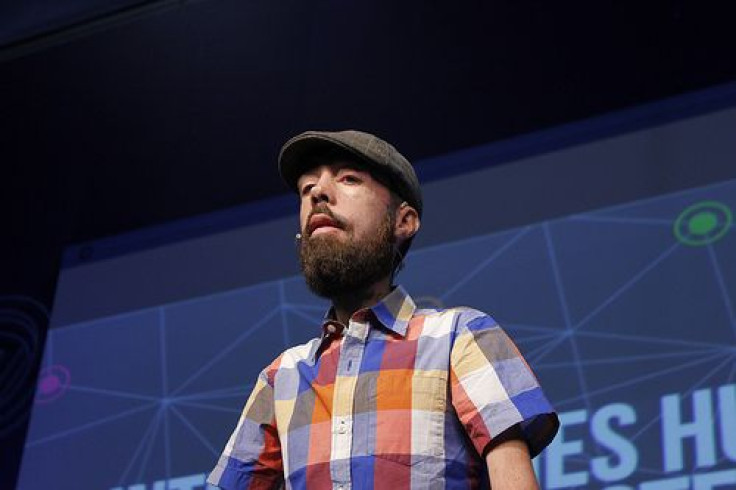Man With Muscle Hypotonia, Maickel Melamed, Finishes Chicago Marathon At 1:30 A.M. To Tearful Welcoming Party

Maickel Melamed began the 2013 Chicago Marathon at 8:20 a.m. And although he eventually crossed the finish line, his final time went unrecorded — race organizers had long broken down the equipment and headed home. Melamed’s finishing time of 16 hours and 46 minutes made him the very last race participant to finish, but the man with muscle hypotonia finished to a waiting crowd over 100-strong, the Chicago Tribune reports.
The 38-year-old Caracas native has endured hypotonia from birth, when his umbilical cord got wrapped around his neck, medically known as “nuchal cord,” restricting functions in his spinal cord. He has since had a generalized form of the condition, characterized by an inability to sustain muscle contraction that commonly leads to poor posture and hyperflexibility, as the stabilizing muscles that keep him upright, or otherwise rigid, can’t stiffen.
Hypotonia shouldn’t be confused with muscular dystrophy, which is a degradation of the muscle tissue. Where dystrophy involves a weakening of the skeletal muscles themselves, hypotonia involves the muscle’s ability to stretch. Hypotonia cannot be changed through diet or exercise, as it is a condition inherent to the neurologic system, where motor neurons can’t fire the proper action potentials critical for muscular contraction — such as when a person reflexively catches a falling object. Someone like Melamed would have a poor response time to this otherwise immediate impulse.
Despite these physical setbacks, the economist-turned-motivational speaker already has two marathons under his belt — one in Berlin, the other in New York City. He hopes to conquer the remaining two, Tokyo and Boston, in his overall quest to run the five World Marathon Majors.
Also a philosophy professor, Melamed had words of inspiration as he crossed the 26.2-mile mark early Monday morning, some he echoed from his New York City marathon in 2011.
"My message is: If you dream it, make it happen. Your life is the most beautiful thing that could happen to you. Make the best with that, and share the best of that," he told reporters. "We come here to share. We come here to make a team. We come here to construct the best world that the children – our children – deserve."



























